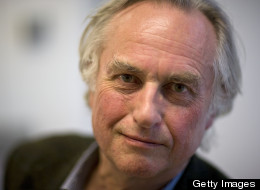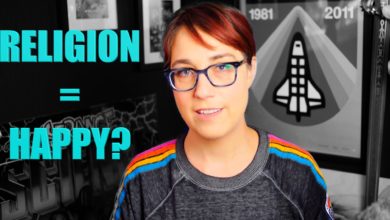The Silencing of Richard Dawkins

EDIT: The original introduction to this post contrasted Dawkins’s feelings of being “silenced” with the Transgender Day of Remembrance, which occurred at the same time that I wrote the piece. It has been brought to my attention that the trans community has been frequently used by various atheist factions to make points that come at their expense or have nothing to do with their particular marginalization. I regret inadvertently becoming a part of that despicable trend. I apologize and thank those who brought this to me.
Today I learned that Richard Dawkins feels “suppressed,” “bullied,” and “muzzled” as a result of backlash he’s received from controversial statements made over the last several years.
If I were Richard Dawkins, I might be inclined to show him examples of what silencing looks like to me, in hopes that he’d be humbled into rethinking his self-conception as a silenced victim. But I’m not Richard Dawkins.
I understand that hardship is relative. I understand that bullying is devastating no matter who you are, and that we cannot measure how “hard” an aspect of life is for one person or another. I understand that silencing is silencing whether it happens to a schoolgirl getting told to stop being “pushy” on the playground or a twentysomething being turned down for a promotion because she “looks too young” or a woman of color being hushed on Twitter by a white “feminist” who feels she has the right to run a conversation.
And so I would like to examine the silencing of Richard Dawkins.
From his twitter account alone, Dawkins has drawn fire over comments widely believed to be sexist, racist, Islamophobic, ableist, rape apologia, and downright douchey. This account had 1,060,435 followers as I wrote this. One million people sign up for his daily musings––and that’s after what he’s said so far.
And what of his public platforms? Dawkins has his own site and foundation, giving him a pedestal for longer-form discussion whenever he wants and the finances to back up a campaign promoting that discussion. He also has the support of the mainstream humanist movement despite statements that alienate much of its population: Dawkins has been a featured speaker at two humanist cons in the last year and will be featured at a CFI conference in 2015. When I called the organizers of these cons to ask whether Dawkins’s inflammatory comments had influenced their decisions to use him as a featured speaker, the World Humanist Con and American Humanist Association both declined to comment on anything concerning Dawkins himself. Ron Lindsay of CFI, to his credit, did grace me with a thoughtful reply:
“We humanists, as a whole, define the direction of humanism… For this reason, I don’t hang on every utterance that Richard Dawkins makes or pay close attention to every tweet that he transmits. Dawkins is undoubtedly someone who is entitled to much respect and honor for all the contributions he’s made to advancing atheism and humanism. Without doubt, he is the person most responsible for bringing awareness of atheism to popular culture. He may also be the best advocate for evolutionary biology, again in terms of bringing this awareness to the non-scientific community. These are important achievements. But despite his formidable intellect, he, like anyone else, may make mistakes and misjudgments from time to time. This does not detract materially from the value of his overall contributions.”
In short, Dawkins should still be given a microphone because he has brought awareness to atheism, but he should not, nor should anyone, be the sole voice for atheism. Giving Lindsay the benefit of the doubt––I was encouraged by his recent stance supporting CFI employee Melody Hensley––he does not believe others should be silenced to make room for Dawkins’s gravitas.
In a way, Dawkins is an atheist example of what I call the “Dan Savage effect.” If queer people of color and (and including) transgender, asexual, and bisexual people had as much of a platform and public influence as Savage, the fact that he hasn’t done as he should by these groups wouldn’t be such a problem. But there’s only one Dan Savage, and whether he’s right or wrong, he’s frequently the media’s––and the straight world’s––only information source on all things LGBTQIA, and as an educated white cis man he moves through the world far more easily than most of that community.
As a journalist I tend to follow the money, and so I shot an email to Todd Stiefel, the benefactor behind events from the Reason Rally to the African Americans for Humanism campaign (full disclosure: I worked on this campaign during my employment at CFI) and an advisory board member to the Richard Dawkins Foundation. Stiefel kindly took time away from an evening at home with a new kitten (making me wish I’d scheduled an in-person interview) to explain that in his view, the problem isn’t Dawkins––it’s that Dawkins’s voice tends to be the loudest. “I think it’s great for Richard to be a voice, but not the voice, of atheism,” he told me over the phone.
“I do think that Richard is imperfect. While I’m a big supporter of his foundation, I don’t always agree with him, and sometimes he says things I may agree with but I certainly would have said in a different way,” Stiefel said. “Is anybody the voice of atheism? No. Does the media position it that way? Yes. Can we do something about that? Yes, to some extent.”
Stiefel was firm with me in his conviction that though Dawkins “has his strengths and weaknesses just like anybody does,” overall “he is vastly a net positive contribution to the movement.” Citing his foundation’s projects and his speaking schedule, Stiefel added, “The man’s in his seventies, yet he’s constantly touring around drumming up support and raising money to pay for programs and projects and speaking. He puts an enormous amount of time and effort into helping, and I have a lot respect for that.”
To be clear: it is in part Dawkins’s continued efforts to make his voice heard, funded in large part by his own largesse, that drum up support from benefactors who want to see the larger freethought movement succeed.
Yet his comments denigrating multiple marginalized groups suggest a fandom that is indifferent to or perhaps even supports those oppressions.
This does not bode well for a safe and open movement. Dawkins claims he’s being suppressed, but on the contrary, I’d argue that any space where he is celebrated runs a real risk of silencing those who lack his power, prestige, influence, and––yes, I’ll say it, Richard––privilege.
My mom sent me a thoughtful email recently in response to a social justice topic, in which she described privilege with the words, “those of us who are protected from this issue.” If we think of privilege as protection rather than, say, unearned success, perhaps it’s easier to see why someone like Dawkins––undeniably intelligent, accomplished, and hardworking––can be said to be blind to his privilege. His impressive safety net protects him from all but the most egregious scandal fallout, and it is his less-renowned and less-moneyed listeners who must choose whether to accept what he says or criticize him on the Internet or perhaps avoid the significant and numerous events that cater to his comfort. Consequences, for Dawkins, amount to the angry tweets and blog posts he considers so beneath his contempt.
If Dawkins has been muzzled, those of us on the receiving end of his vitriol had better hope we never have to see him off leash.
Featured image: Getty Images





Damn. I think that went out of the park…
My head explodes when I hear Dawkins talking about being silenced. And it explodes because what’s happening is that he’s being DISAGREED WITH. For a while, he enjoyed nearly full immunity from criticism within atheism and now that he has to live with opposing views, he’s claiming oppression.
TL;DR MAN WHO IS USED TO HAVING IMPUNITY IS CRITICIZED; CRIES OPPRESSION. This is a classic case of entitlementitis.
I think that Richard Dawkins is one of the best public faces for evolutionary biology, he is very good a communicating its complexities in such a way that laypeople like myself can grasp.
Having said that, I think he would do himself a huge favor if he would keep his opinions outside of his field of expertise to himself.
If that opinion from an internet peon such as myself makes Dr. Dawkins feel bullied I have sympathy for him.
In fact, if I were so inclined I would visit a blog closely affiliated with his own to remind the marginalized in the world to take heart and a seat while we attend to the bruised feelings of the fragile Mr. Dawkins. But then what kind of asshole would do something that condescending and derailing?
Oh yeah, never mind.
I think the difference between Dawkins and Savage is that Savage is self-aware enough to improve himself regarding inclusiveness.
To clarify: I think he actually DOES improve himself.
Yes, I’d agree that Savage has done a much better job of growing and changing as a person over time. As in, he actually is aware that privilege is a thing.
I think Savage does make an effort to improve himself, and is an activist for those who are downtrodden. Looking over that list, there were a good number of “Dan, why would you say that??”, but then there were some where I think sarcasm or context were missed.
That said, he still has a bit of a ways to go, and definitely needs to continue to be aware of all his privilege, but he has talked to and seen so many people from so many different backgrounds I think he gets a reminder of how much easier things were for him than they are for everyone all the time.
It would be good if every community had a wider variety of voices though. That way we don’t have to have the same sort of collapse as Mars Hill when there is a fault in The Leader.
Thank you for this. It’s an incredibly well written, elegant piece.
I want to attend the CFI conference in Buffalo, NY next June with Susan Jacoby and Rebecca Goldstein but don’t think I can stand Richard Dawkins. Maybe I should go to support the first two panelists and make my opinion known to any and all about Dawkins.
I’m still waiting for a prominent atheist leader to bluntly tell Dawkins to his face that he’s a hateful horrible bigot and I feel like nothing is going to change until we finally get someone to do it.